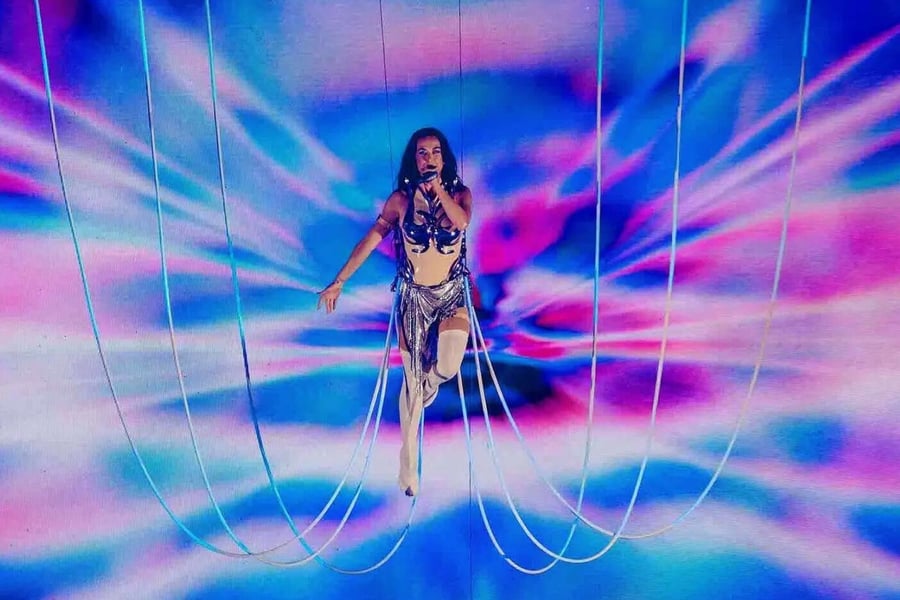Before Katy Perry had Australian fans on their feet at the 2024 AFL Grand Final, she took centre stage for a firework-filled celebration at what’s been dubbed “the Super Bowl of festivals”—Rock in Rio 2024.
Held in Rio de Janeiro, Brazil, the multi-day biennial has become a cultural touchstone, drawing over 700,000 attendees from around the globe for each edition.
Since its inception in 1985, the festival has brought together some of the biggest names in music, from Queen, Prince, and Elton John to Beyoncé, Drake, Rihanna, and this year’s Mariah Carey, creating unforgettable moments that resonate far beyond Brazil’s borders.
This year, Rock in Rio celebrated its 40th anniversary, marking four decades of iconic performances.
The festival has played a crucial role in shaping the global music landscape, serving as a launchpad for artists to connect with a worldwide audience. With editions also held cities like Lisbon, Madrid, and Las Vegas, Rock in Rio has expanded into an international phenomenon.
Queen’s legendary 1985 performance, where Freddie Mercury led a 300,000-strong crowd in a singalong of “Love of My Life,” still remains as one of the festival’s most defining moments.
At Rock in Rio 2024, one of the most eagerly anticipated nights was Dia Delas (Women’s Day), held on September 20th.
Love Music?
Get your daily dose of everything happening in Australian/New Zealand music and globally.
An all-female lineup featuring global superstars and rising talents, this event became one of the fastest-selling days in the festival’s history.
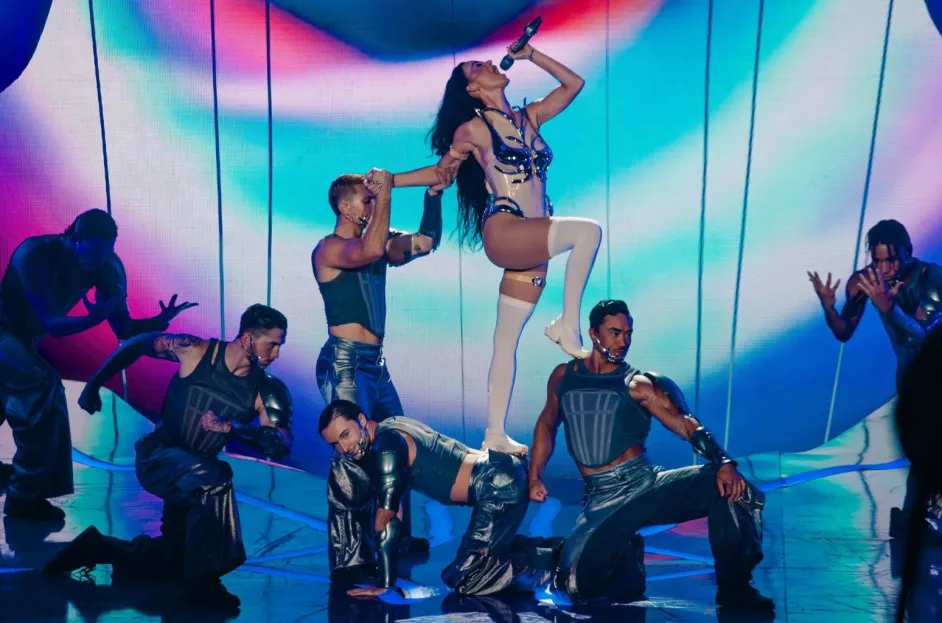
Image: Katy Perry Credit: Vans Bumbeers
Katy Perry headlined the night, choosing the festival to debut her album 143, joined by a powerhouse roster including Karol G, Cyndi Lauper, Gloria Gaynor and Australia’s own Alison Wonderland.
It was a celebration of female power in music, and Perry’s midnight set on the Palco Mundo stage where she would play her newest tunes for the first time became the high point of the night.
Taking the stage as fireworks lit up the Rio sky, Perry had the 100,000-strong crowd going wild with dazzling visuals and pyrotechnics that transformed the City of Rock into a vibrant spectacle, with fans singing along to hits like “California Gurls” and “Swish Swish.”
As if Perry’s album debut wasn’t enough excitement for one night, the “Woman’s World” singer surprised fans by bringing out pop legend Cyndi Lauper, who had performed her own high-energy set earlier, for a powerful duet of the icon’s chart-topping 1984 hit, “Time After Time.”
“I want to sing one of my favourite songs, it means so much to me, especially in Brazil,” Perry told the crowd as she brought Lauper to the stage.
“I want to be exactly like you when I grow up, exactly like you,” Perry told the “Girls Just Want to Have Fun” singer. “You are so incredible, so connective, so full of life, so full of energy.”
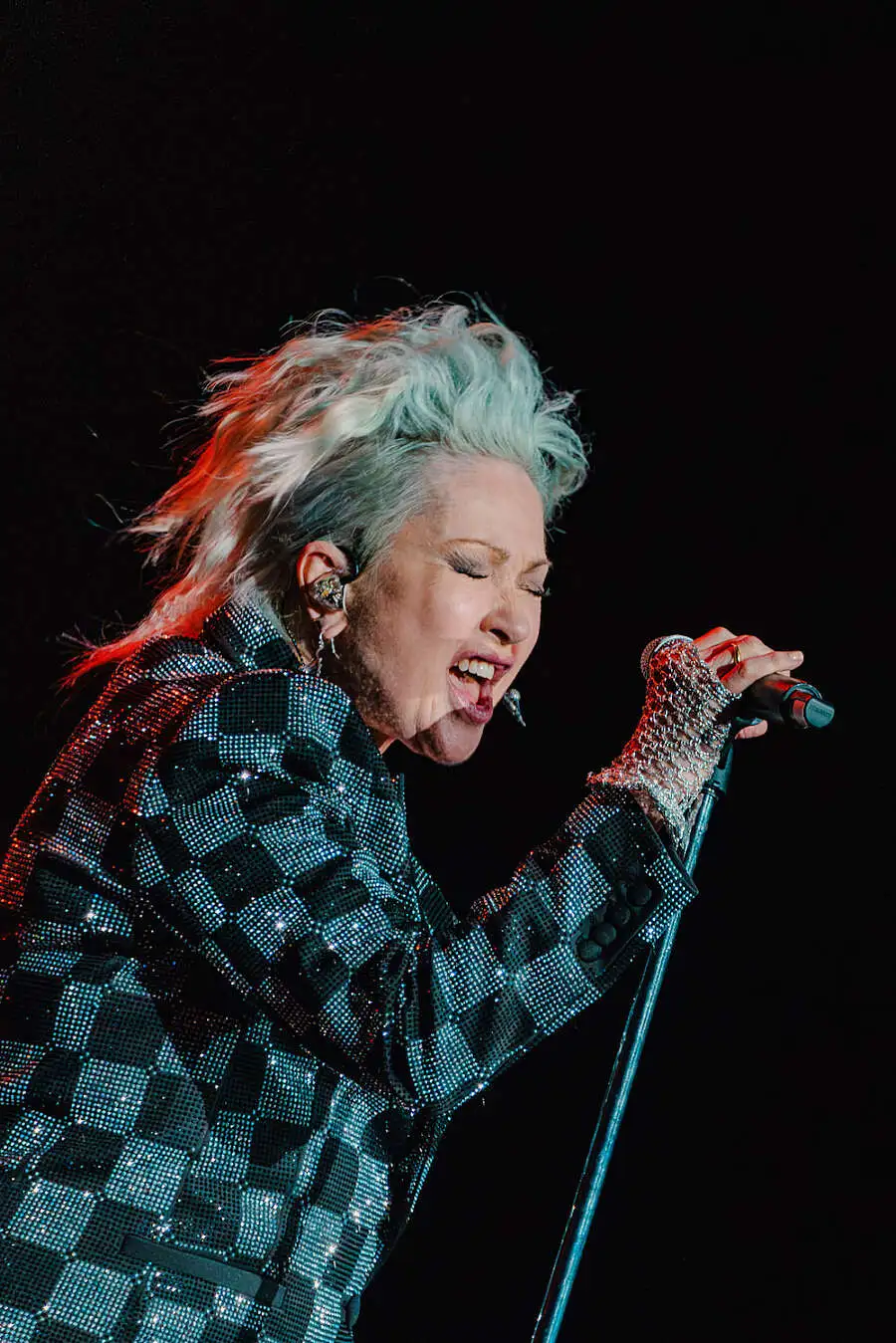
Image: Cyndi Lauper Credit: Vans Bumbeers
Speaking of artists of Perry’s magnitude choosing the festival as the launchpad for such monumental moments, Luis Justo, CEO of Rock in Rio, said, “Katy Perry decided to use rock and Rio as its platform to launch her new album knowing that Rock in Rio has all this repercussion globally with the way we approach communication, social network, the care that we have in our broadcast, which is always top level.”
Since its early days, Rock in Rio has attracted the biggest names in rock, pop, and beyond. The 1985 debut featured acts like AC/DC, Iron Maiden, and Rod Stewart, setting the stage for future lineups that would include heavyweights like Guns N’ Roses, Metallica, Paul McCartney, and Bruce Springsteen.
The festival’s ability to draw artists from a wide range of genres—whether it’s the pop mastery of Madonna or the iconic rock of The Rolling Stones—has helped it become a pillar of the global music festival scene.
Reflected on how the festival has continuously evolved while staying true to its roots, Justo explained, “Rock in Rio is more than just a festival. It’s a platform where artists connect with new audiences, launch new albums, and create lasting memories.”
Earlier in the evening, Cyndi Lauper took to the stage for her own set with her timeless anthem “Time After Time,” which she dedicated to her charity Girls Just Want to Have Fundamental Rights. Her emotional performance, set against the stunning Rio skyline, brought a wave of nostalgia to the humid night.
Latin sensation Karol G also brought her flavour to the night, lighting up the stage with reggaeton beats and infectious energy.
“Friday night is Latino party night!” she declared, as the crowd erupted into dance, fireworks synchronising with the rhythm of hits like “Tusa” and “Bichota.”
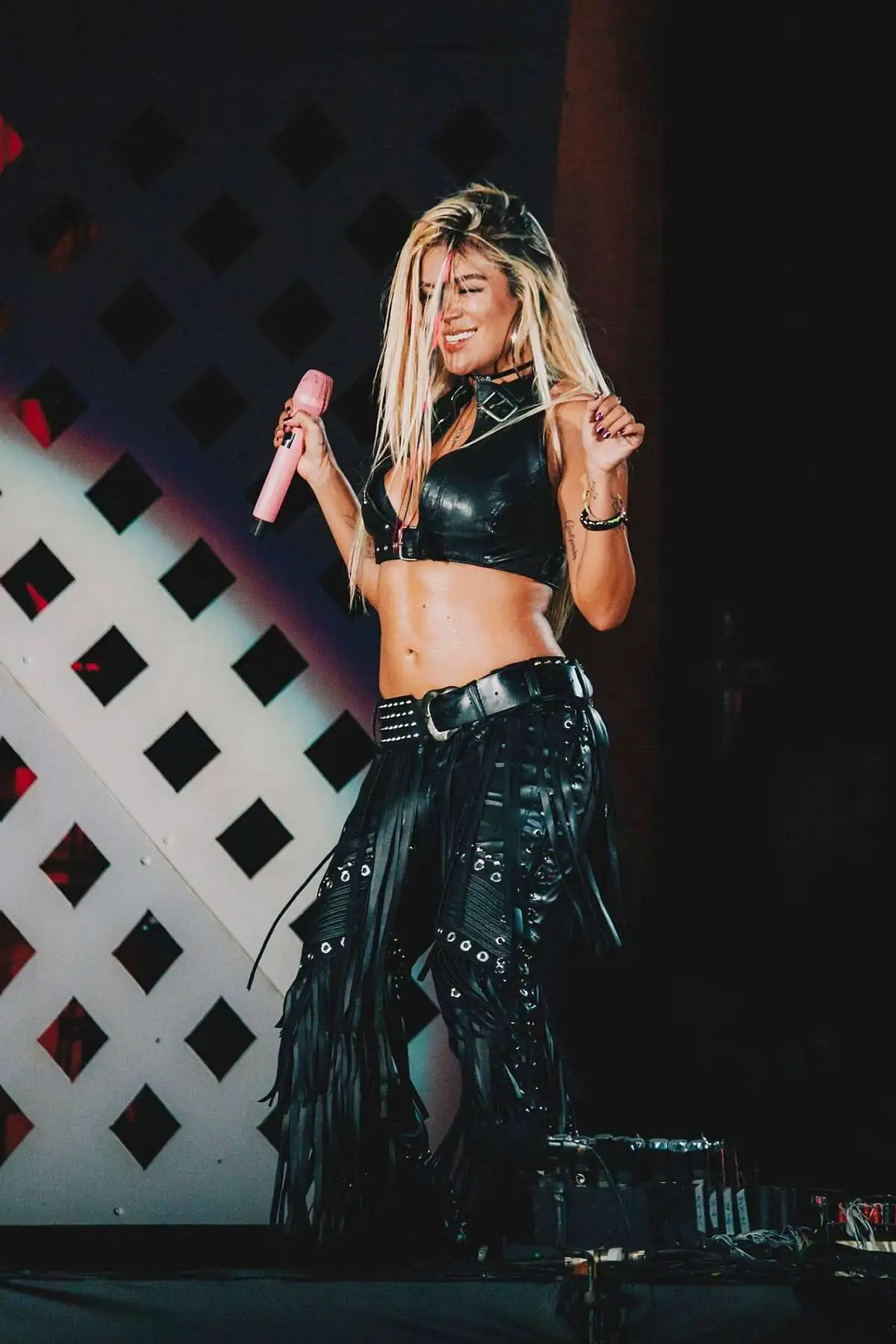
Image: Karol G Credit: Oxidany
Meanwhile, Australia’s own DJ Alison Wonderland closed out the New Dance Order stage with a performance that had punters going wild, her set flowing seamlessly between hypnotic rhythms and heavy drops, wowing the crowd and keeping them dancing well into the night.
Reflecting on the 40-year journey of the festival, Justo noted that, originally, Rock in Rio wasn’t created as a typical music event.
“Rock in Rio wasn’t born like a regular festival. From the beginning, it was about creating a platform for experiences. It’s not just about building a stage—it’s about making sure every aspect of the festival creates a connection between the artists, the brands, and the audience.”
Saturday’s Brazil Day offered a tribute to the country’s rich musical heritage, featuring local legends like Ivete Sangalo, Gaby Amarantos, and Iza.
For many, this day was a celebration of Brazilian music’s global influence. Rock in Rio has always made a point to highlight Brazil’s diverse sounds, from samba to funk to MPB (música popular brasileira), making it a festival where local and global converge.
“This year, having a full Brazilian setup and all the shows makes it even more special, not just for the global audience through our broadcast, but also for introducing many Brazilian artists who are gaining recognition beyond our borders,” Justo said.
“We’re bringing together around 80-90 different artists, many of whom have never performed together before. For us, it’s especially meaningful because we’re not only celebrating something new but also presenting to the world how proud we are to be a Brazilian brand. Of course, we have global stars like Katy Perry and the international acts, but we are also honouring our own culture, foundation, and business,” Justo explained.
2000s R&B icons Ne-Yo and Akon also brought the house down with their smooth vocals and timeless hits. Ne-Yo, dressed in a red satin suit, had the crowd swaying with “Closer” and “Let Me Love You,” while Akon’s “Sexy Bitch” turned the venue into a full-blown dance party.
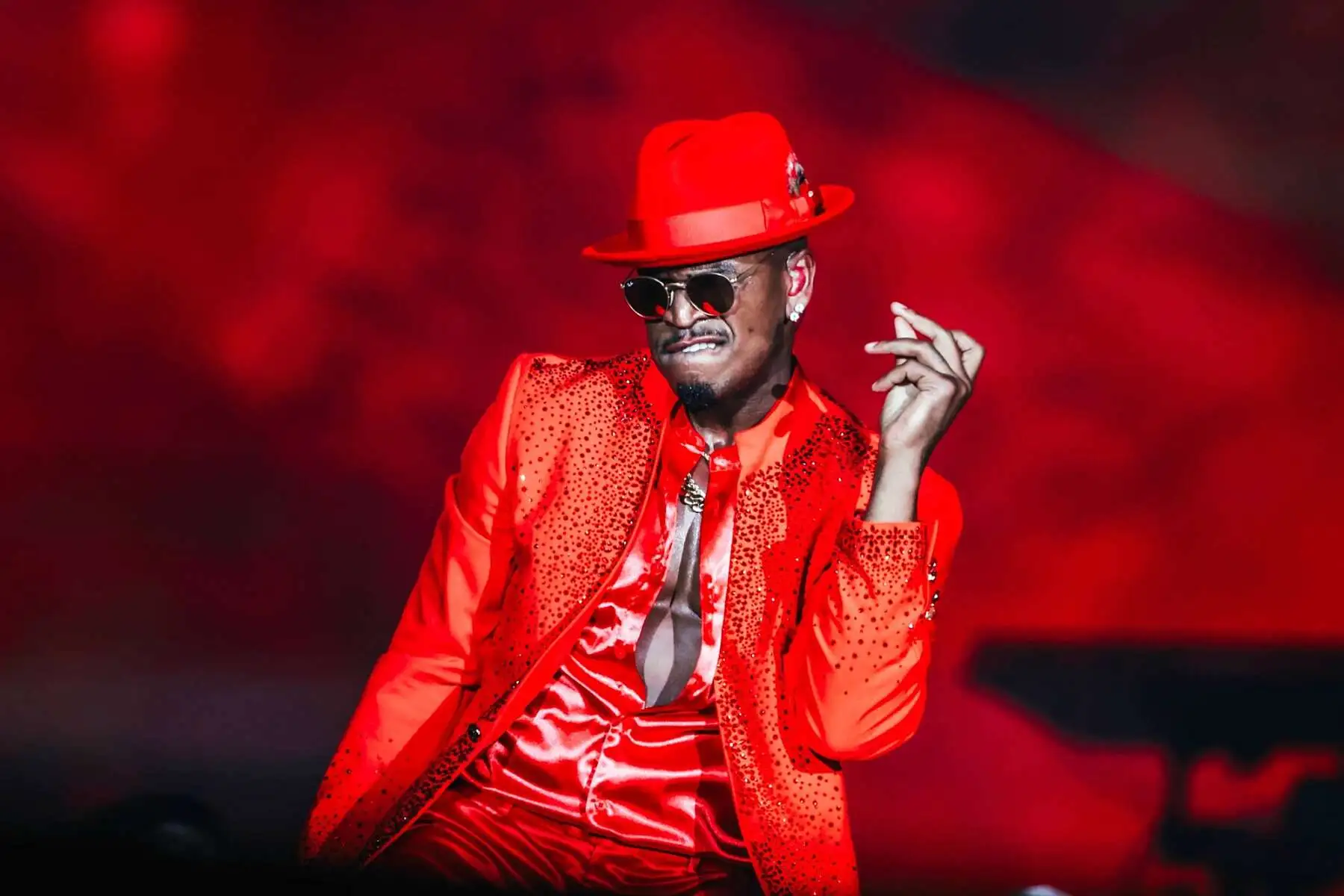
Image: Ne-Yo Credit: Vans Bumbeers
With the festival’s 40th anniversary wrapping up, attention is already turning to the future. The Town, Rock in Rio’s sister festival in São Paulo, is set to continue the legacy next year, keeping alive the tradition of bold performances and unforgettable moments.
“The secret of a 40-year festival is that you always have to be innovative. If you don’t innovate, you don’t survive.”
For Perry and the other incredible women who took the stage at Dia Delas, Rock in Rio 2024 was more than just a performance—it was a celebration of female empowerment, music history, and the enduring influence of live music.

































